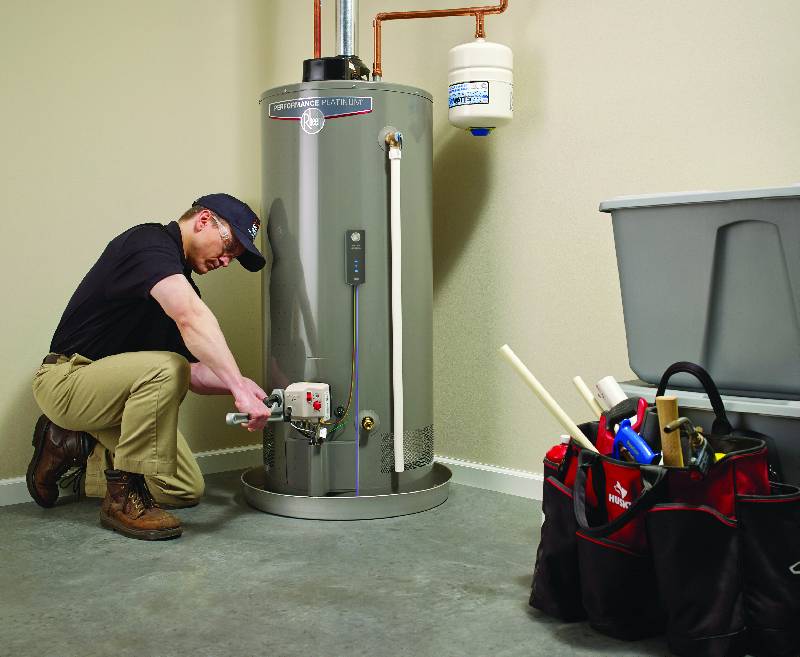Are you on the lookout for facts on Common Problems with Tank Water Heaters?

Visualize starting your day without your routine hot shower. That currently establishes an inadequate tone for the remainder of your day.
Every home needs a reliable hot water heater, however just a few recognize just how to take care of one. One very easy means to maintain your hot water heater in leading shape is to check for faults routinely and fix them as quickly as they show up.
Keep in mind to turn off your water heater prior to smelling around for faults. These are the hot water heater faults you are most likely to run into.
Water as well hot or also chilly
Every water heater has a thermostat that figures out just how warm the water obtains. If the water coming into your house is as well hot regardless of establishing a convenient maximum temperature level, your thermostat might be malfunctioning.
On the other hand, too cold water may be because of a fallen short thermostat, a busted circuit, or incorrect gas circulation. As an example, if you use a gas hot water heater with a broken pilot burner, you would obtain cold water, even if the thermostat is in excellent problem. For electrical heating systems, a blown fuse might be the culprit.
Not enough warm water
Hot water heater been available in many dimensions, depending on your hot water demands. If you run out of hot water before everyone has had a bath, your water heater is also tiny for your family size. You must take into consideration setting up a larger water heater container or selecting a tankless water heater, which occupies much less space and also is a lot more resilient.
Strange sounds
There are at the very least five kinds of noises you can hear from a hot water heater, but one of the most common analysis is that it's time for the water heater to retire.
First off, you need to be familiar with the regular seems a hot water heater makes. An electric heating system may seem various from a gas-powered one.
Popping or banging noises generally imply there is a piece of debris in your containers, and it's time to clean it out. On the other hand, whistling or hissing noises might merely be your shutoffs allowing some stress off.
Water leakages
Leakages could come from pipes, water connections, shutoffs, or in the worst-case scenario, the tank itself. Over time, water will corrode the container, and also locate its escape. If this takes place, you need to replace your water heater as soon as possible.
Nonetheless, prior to your modification your entire tank, make certain that all pipelines are in place which each valve functions completely. If you still need assistance identifying a leakage, call your plumber.
Rust-colored water
Rust-colored water indicates one of your hot water heater components is rusted. It could be the anode pole, or the tank itself. Your plumber will have the ability to identify which it is.
Warm water
No matter exactly how high you established the thermostat, you won't get any kind of hot water out of a heating unit well past its prime. A hot water heater's efficiency may lower with time.
You will also get warm water if your pipelines have a cross connection. This implies that when you activate a tap, warm water from the heating system moves in alongside regular, cold water. A cross connection is easy to spot. If your hot water faucets still run after closing the water heater valves, you have a cross connection.
Discoloured Water
Corrosion is a significant source of unclean or discoloured water. Deterioration within the water storage tank or a stopping working anode rod could create this discolouration. The anode rod safeguards the tank from rusting on the within and should be examined yearly. Without a pole or an effectively working anode rod, the warm water rapidly wears away inside the tank. Call an expert water heater professional to identify if changing the anode pole will take care of the problem; if not, change your hot water heater.
Conclusion
Ideally, your hot water heater can last one decade before you need a modification. Nonetheless, after the 10-year mark, you might experience any one of these mistakes more on a regular basis. Now, you should add a new water heater to your budget.
How To Troubleshoot 3 Common Water Heater Problems in Twin Cities
The Water Heater Is Leaking
A leaky cold water inlet valve A loose pipe fitting A leaky temperature and pressure relief valve A corroded anode rod A cracked tank Turn Off Your Water Heater:
Shut off your gas water heater by turning the gas valve on the unit to the “OFF” position. Shut off your electric water by switching its power off at your electrical panel. Look for a two-pole breaker labeled “water heater” and turn it to the “OFF” position. Move the ball valve connected to the water heater to be perpendicular to the piping at a 90° angle. Look for the Leak:
Depending on whether the water is coming from the tank's top or bottom, you’ll want to look for the leak in different locations.
If the leak comes from the top of the tank, carefully look for water escaping from the cold water inlet valve or loose pipe fittings. Rusted hot and cold water valves can have loose connections with the tank, with water leaking out of them.
https://mspplumbingheatingair.com/blog/how-to-troubleshoot-3-common-water-heater-problems
We were shown that write-up about Water Heaters Problems through an associate on a different blog. Kindly set aside a second to promote this article if you liked it. I appreciate reading our article about Water Heater Repair and Troubleshooting.
Schedule A Service Call